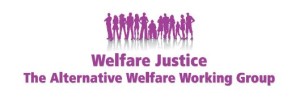Kia Pike Ake – Welfare Expert Advisory Group
The Kia Pike Ake The Welfare Expert Advisory Group (WEAG) was established by the Minister for Social Development Hon Carmel Sepuloni in June 2018 to conduct a review of the social welfare system. The government describes its vision for welfare as:
“A welfare system that ensures people have an adequate income and standard of living, are treated with and can live in dignity and are able to participate meaningfully in their communities.”
The WEAG group has been meeting regularly since then and is expected to be asking for comment and feedback from the public over the next few months before it is due to report back to the Minister of Social Development in February 2019.
A new Social Security Act
Meanwhile, the current government has completed the work started by the previous government to re-write the Social Security Act 1964 into a modernised streamlined version designed to untangle the hundreds of amendments made since it was passed over 50 years ago.
This new Social Security Act 2018 is expected to be made law by Parliament in September and come into effect on 26th November 2018. Because of the way this law has been framed, it is most likely only a precursor to further law changes that may be part of the recommendations for the WEAG group. NZCCSS and many others will be calling for more fundamental change to meet needs of our country for the coming decades.
A Vision for Welfare in the 21st Century
NZCCSS has set out the outlines for a vision for a social security system fit for the next 80 years in a media release on 18th September 2018 marking 80 years since the passing of the first comprehensive social security law in this country in 1938. The political leaders of the 1930s who were the initiators of the new welfare laws, such as then Prime Minister Michael Joseph Savage, drew on values of concern for others, that we are all our “neighbour’s keeper” coming out of their own Christian faith. Those values are shared across all the great religions and indeed underpin our wider values of human rights and social justice.
“Aroha tetāhi ki tetāhi – let us look after each other, is the way we draw on these values to describe the hope we have for our country,” says NZCCSS President, Ian Hutson. “Our vision for welfare in this country must be for one that enables people rather than impoverishing them,” says. “The priority must be to deliver sufficient income and other support so that whānau and families can thrive.”
Welfare Justice
 That vision draws on the shared values for welfare justice that were set out in 2010 by churches’ sponsored Alternative Welfare Working Group that was a response to the then National-led government’s very narrowly focused Welfare Working Group review of social welfare.
That vision draws on the shared values for welfare justice that were set out in 2010 by churches’ sponsored Alternative Welfare Working Group that was a response to the then National-led government’s very narrowly focused Welfare Working Group review of social welfare.
Welfare Justice For All, the final report of the Alternative Welfare Working Group, sets out the values and vision that should underlie the approach to welfare in this country. It is these principles that need to inform the debate about social security in the 21st Century. These principles draw on the comprehensive work done in the Royal Commission of Inquiry into Social Security 1988 and the 1972 Royal Commission on Social Security.
The provision of social security reflects the values of interdependence, social cohesiveness and the common good
Affirm adequate benefit levels to ensure participation in society and reject punitive stigmatising policies and a narrow focus on paid work.
Social security:
- Requires investment in the well-being of all members of society
- Ought to properly reflect Māori aspirations for full citizenship and rangatiratanga
- Ought to protect the vulnerable from adverse conditions
- Ought to be financed by general taxation rather than individual contributions
- Should encourage opportunity for all citizens to participate in our society
- Ought to facilitate the achievement of paid employment, as well as other beneficial types of work
- Should provide an adequate standard of living
Social security law should be simple, transparent, consistent and consistently applied
A comprehensive social security system should be linked with good economic, employment, housing, health, education and social services. (Welfare Justice For All, p.8-9)
NZCCSS welcomed the 2010 report as taking a “21st century approach to social security, one that incorporates a broad approach and recognises the links between employment, education, health, housing and social policies based on enhancing inclusion and reducing inequalities”, providing a vision for a successful New Zealand.
